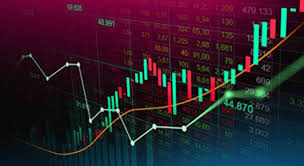
When it comes to forex trading, having the right tools at your disposal can make all the difference. forex trading tools Islamic Forex Trading provides insights into how to navigate the complex world of currency trading. In this article, we will explore some of the most essential forex trading tools available to traders, enhancing your trading strategy and decision-making process.
1. Trading Platforms
The foundation of any forex trading operation is the trading platform. Trading platforms provide the interface through which traders execute trades, analyze markets, and manage their accounts. Some popular platforms include MetaTrader 4 (MT4), MetaTrader 5 (MT5), and cTrader. Each platform offers unique features, such as automated trading capabilities, customizable indicators, and user-friendly interfaces. When selecting a platform, consider factors like ease of use, available tools, and customer support.
2. Charting Software
Charting software is critical for visualizing price movements and analyzing market trends. Tools like TradingView and ProRealTime offer advanced charting capabilities, including various technical indicators, drawing tools, and real-time market data. Traders use these tools to identify potential entry and exit points in the market. Quality charting software should allow for customizable settings, enabling traders to develop and test their trading strategies effectively.
3. Economic Calendars
Staying updated with economic events and announcements is crucial for forex traders. An economic calendar provides information on scheduled news releases that may affect currency prices. Economic indicators such as interest rates, employment figures, and GDP growth can significantly influence market movements. Many trading platforms include an integrated economic calendar, or you can use dedicated websites like Forex Factory or Investing.com.
4. Trading Journals
Documenting your trading activities is key to long-term success in the forex market. A trading journal helps you analyze your trades, assess your performance, and refine your strategies. Traders can track details such as entry and exit points, trade reasons, and emotional responses. By reviewing your trading journal regularly, you can identify patterns and make informed adjustments to improve your trading approach.
5. Risk Management Tools
Effective risk management is essential to protect your trading capital. Tools like position size calculators and risk-reward ratio calculators enable traders to assess their exposure to potential losses. These instruments help determine the appropriate position size for each trade based on stop-loss levels and overall account risk. Utilizing these tools can enhance your decision-making process and maintain discipline in your trading strategy.

6. Forex Signals
Forex signals provide traders with trade ideas based on technical analysis or other indicators. These signals can be generated through automated systems or by experienced analysts. Many forex brokers offer signal services, while independent providers also exist. Traders can choose to follow these signals to guide their trading decisions or use them as a complement to their analysis. While forex signals can be helpful, they should be approached with caution and not solely relied upon.
7. Algorithmic Trading Software
Algorithmic trading involves using automated systems to execute trades based on predefined criteria. This can eliminate emotional decision-making and increase trading efficiency. Algorithms can analyze market conditions faster than humans and can open and close trades automatically. Platforms that support algorithmic trading, such as MT4 and MT5, allow users to develop and implement their own trading bots using programming languages like MQL4 and MQL5.
8. Community Forums and Social Trading
Participating in community forums can provide valuable insights and support from fellow traders. Platforms like Forex Factory and BabyPips host vibrant communities where traders share experiences, tips, and analysis. Additionally, social trading platforms allow traders to follow and copy the trades of experienced investors. This can be an excellent way for beginners to learn and gain confidence in their trading strategies.
9. Educational Resources
Continuous education is vital for success in forex trading. Numerous websites, online courses, and webinars provide educational resources covering various aspects of trading, from technical analysis to risk management. Invest time in expanding your knowledge to stay informed about market trends and improve your trading skills. Additionally, many brokers offer free educational materials and training sessions for their clients.
10. Market News and Analysis
Staying informed about market news and analysis is crucial for anticipating currency movements. Many dedicated financial news websites, such as Bloomberg and Reuters, provide real-time updates on economic indicators, political events, and other factors that influence the forex market. Familiarize yourself with multiple sources to gain a balanced view of market dynamics and how they might impact your trading decisions.
Conclusion
The world of forex trading can be both rewarding and challenging. By leveraging the right tools, traders can enhance their strategies, improve their decision-making, and ultimately increase their success in the market. Whether you’re a beginner or an experienced trader, incorporating these essential forex trading tools into your routine will help you navigate the complexities of forex trading with greater confidence and competence. Stay informed, practice discipline, and continuously learn to thrive in the ever-evolving forex landscape.
